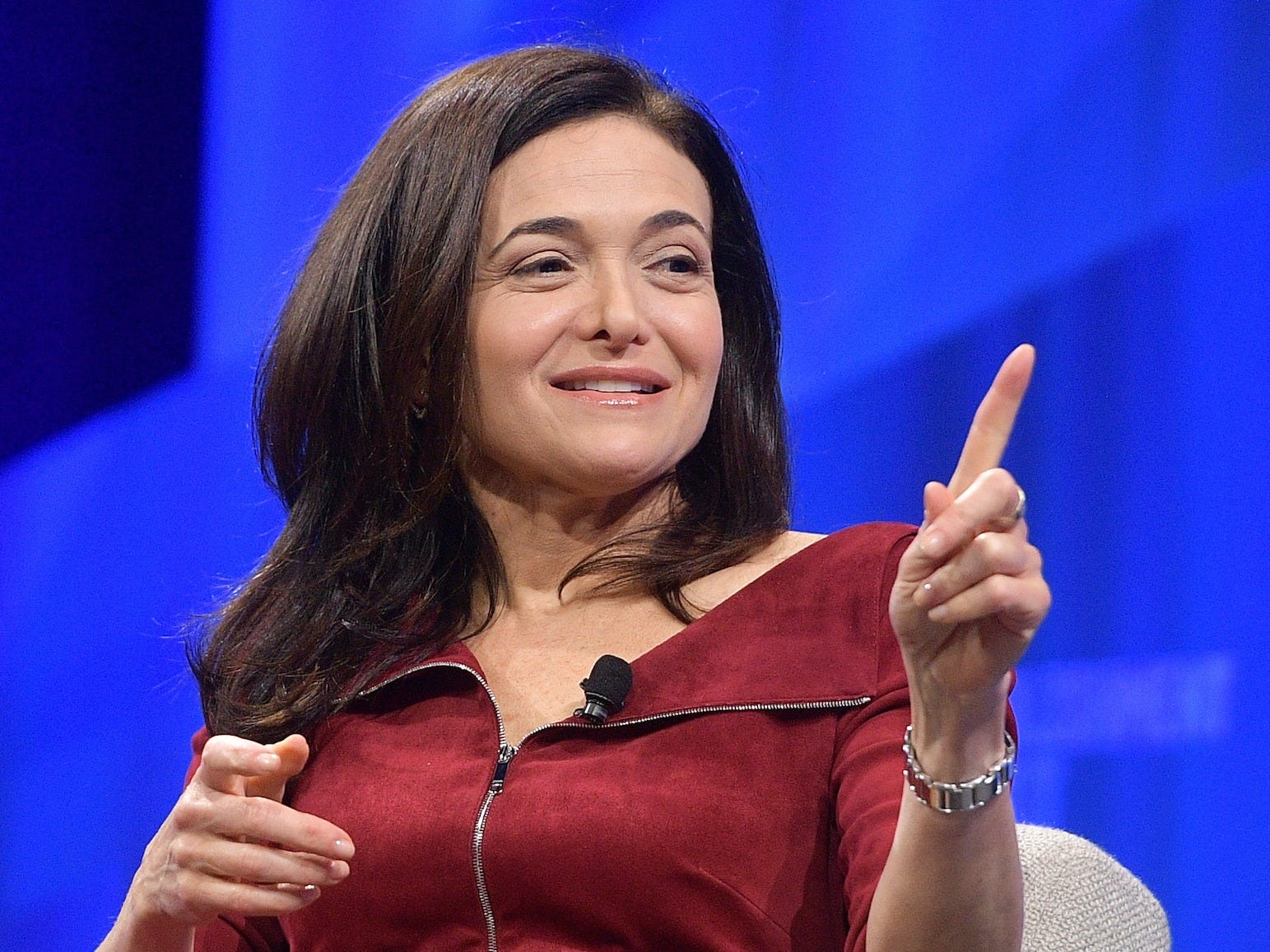- Facebook COO Sheryl Sandberg said the company is making changes to better address hate speech on the platform.
- Those changes, Sandberg wrote on Facebook, are being made “not for financial reasons or advertiser pressure, but because it is the right thing to do.”
- Sandberg and CEO Mark Zuckerberg are meeting with civil rights leaders on Tuesday. The following day, Facebook plans to publish the findings from a two-year independent civil rights audit. Facebook’s diversity and inclusion report will be published soon as well, Sandberg said.
- Sandberg’s comments come after more than 500 advertisers have boycotted the site following a call from civil rights groups including the NAACP.
- Visit Business Insider’s homepage for more stories.
Sheryl Sandberg said that Facebook is making changes to better identify and remove hateful content on the platform, but that those changes aren’t motivated by recent advertiser boycotts.
Sandberg, who serves as Facebook’s chief operating officer, wrote a Facebook post on Tuesday morning explaining how Facebook is taking action in light of the civil rights protests across the country. Sandberg and CEO Mark Zuckerberg plan to meet Tuesday with the organizers of the Stop Hate for Profit campaign, as well as a group of civil rights leaders from the Leadership Conference on Civil & Human Rights and the NAACP Legal Defense Fund.
Additionally, Facebook on Wednesday plans to publish its findings from an independent civil rights audit, which Sandberg said has been in the works for two years. The report will be followed soon after by Facebook’s diversity and inclusion report, an update on how the company is making its workforce more representative.
These updates and changes, Sandberg said, are being made “not for financial reasons or advertiser pressure, but because it is the right thing to do.” She said the company has spent billions of dollars building teams and technology that identify and remove hate speech on the platform and noted Facebook’s previous advancements in artificial intelligence that can perform those tasks as well.
But over the course of the last week, major organizations have said that Facebook's previous efforts have not gone far enough. Following George Floyd's death in May and the protests that began in Minneapolis, President Donald Trump posted on Facebook that the protesters were "thugs" and seemed to suggest violence against him. Though Twitter took action against the posts, saying they seemed to glorify violence, Facebook decided not to take any action against the posts or Trump. In response, civil rights groups called for advertisers to boycott the site - now, more than 500 advertisers, including Coca-Cola, Verizon, and Ford, have now pulled their ads from Facebook.
Zuckerberg doesn't appear to be swayed by the boycott. In a message to employees last week, he said the company wouldn't be changing its approach on hate speech, despite the boycotts, according to a report from The Information's Alex Heath.
"We're not gonna change our policies or approach on anything because of a threat to a small percent of our revenue, or to any percent of our revenue," Zuckerberg reportedly told employees, adding that the advertisers will likely "be back on the platform soon enough," according to The Information.
Facebook initially saw $60 billion in market value erased in two days as major companies like Starbucks and PepsiCo joined the boycott, though its stock has rebounded since.

